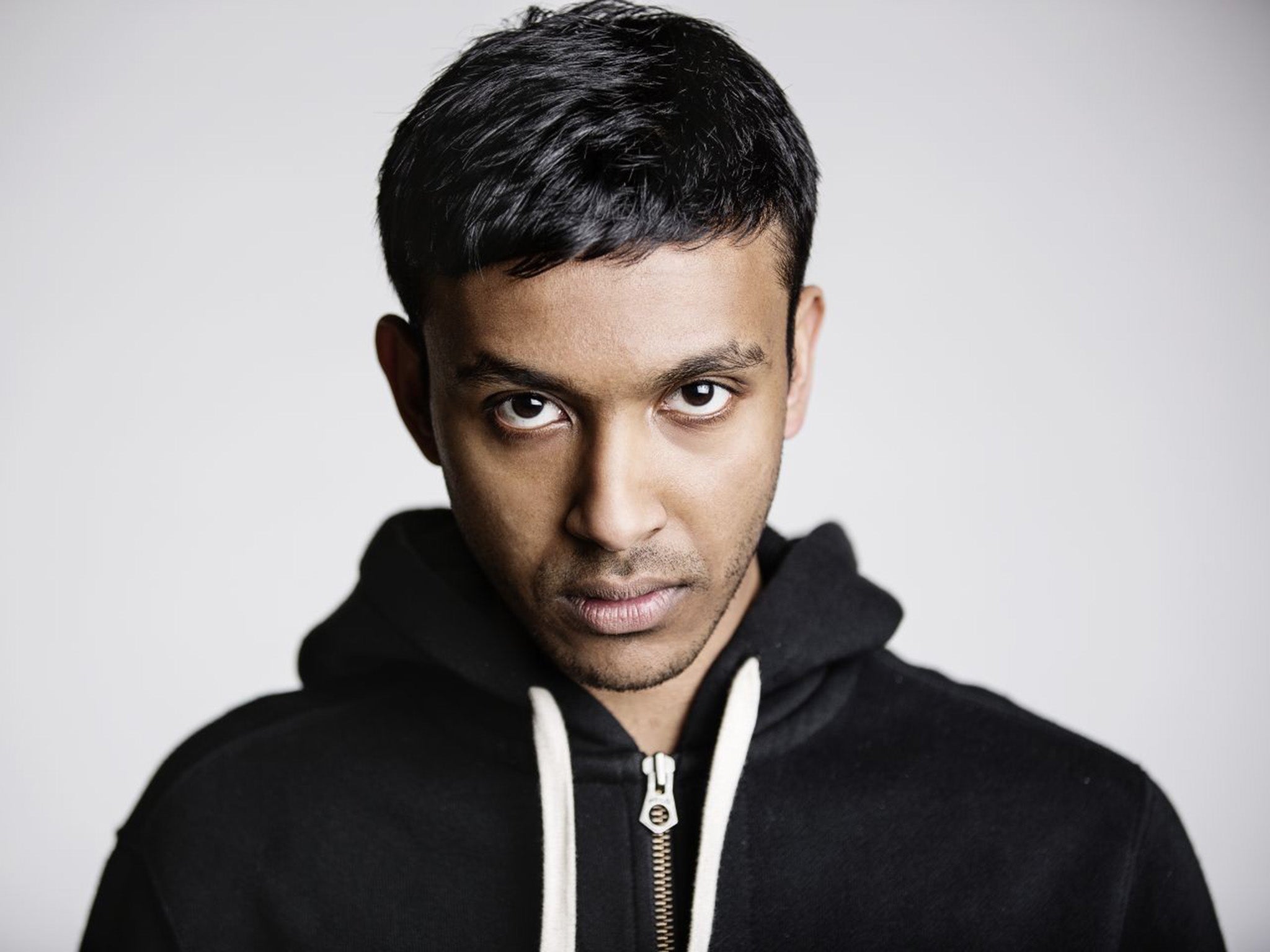Avaes Mohammad: Playwright on making two plays on Muslim terrorism and white fascism
'There’s something weird going on when people born and raised here are willing to destroy this country'

Avaes Mohammad wanted to write a play about Muslim extremism in the North of England. Actually, he wanted to write three – a trilogy, going from 9/11 to the present moment. But when he approached Rod Dixon, of the Red Ladder Theatre Company, he was persuaded to look at two different versions of extremism in modern Britain: Muslim terrorism and white, working-class fascism.
Dixon had the sense that these were two sides to the same coin, something that’s been borne out in their research. “I was more interested in the parallel stories. And the more we interviewed people, the more we realised that the young men in particular had the same needs that weren’t being met.”
Mohammad wrote a double bill about to open at the Park Theatre – Hurling Rubble at the Sun and Hurling Rubble at the Moon. They’re stand-alone plays, but have overlapping characters and make powerful companion pieces. They are both set around the 7/7 bombings, with Sun looking at a radicalised young Muslim, while Moon focuses on a young white man who gets caught up in racist violence and the BNP.
“I come from Blackburn, which is a very divided town,” he explains. “I was raised in a very ghettoised Muslim Asian community. In the same town there was an equally ghettoised white, working-class community. What’s interesting is, although they live in isolation, how conjoined their narratives are. Where we’ve seen the rise of Muslim extremism, we’ve also seen the analogous and parallel rise of white, working-class extremism.”
Mohammad sees both as stemming, in part, from a lack of social inclusion; even now in the privileged position of professional playwright, he says he’s “never felt 100 per cent British”. And if a young person – struggling with their sense of identity – is made to feel like an outsider within British society, that may also make them vulnerable targets for radicalisation, be that by Isis or the EDL.
“There’s something weird going on when people born and raised here are willing to destroy this country,” argues Mohammad. “That can only be possible if your British identity didn’t mean a lot to you. Similarly in the white working-class – both of these communities of young people don’t feel like they have a stake in mainstream British society. And with classic divide and rule politics you’re always told the problem is with the other, when actually perversely you have the same problem.”
Dixon, who directs Sun, approached several theatres across the UK with the project, but Park Theatre was the only one up for the potentially controversial material. “I really admire them for having the courage to do it, because I don’t think the other theatres did,” says Dixon.
For the artistic director Jez Bond, directing Moon was a good fit. “Since the Greeks, theatre has always discussed political issues of the day – politics in the broadest sense, what’s pertinent to the people. Theatre has a responsibility to do that, to look at issues that are very real and in the news, but it’s an opportunity to do something that looks at them in terms of people.”
The plays will also be accompanied by outreach work – a Red Ladder speciality, which is a boon for Bond: “We’ll have open space workshops for young people, where people can say what they feel about issues in the play – extremism, multiculturalism – in a way they couldn’t at school or even home.”
The theatre sits in the diverse London borough of Haringey, and Bond always wanted to reflect that. “Minorities don’t go to the theatre – there’s a reason, and it’s because theatre historically had not reflected their lives, their stories, their narratives. We want to programme work that really reflects our community.”
I have an awkward question: is there a risk that you further delimit and stereotype British Muslim experience, in offering another narrative that collapses ‘Muslim’ with ‘terrorist’?
Absolutely not, insists Mohammad. “If I was telling the story of a Muslim astronaut and we had someone with terrorist leanings in it, that would be fulfilling a stereotype. This is a story about a racist fascist, and a Muslim terrorist: that is exactly what they are.”
Indeed, both plays may actually confound audiences’ expectations of “issue” plays, Dixon suggests: the idea is not to explain away extremism, but to simply uncover the human being beneath it.
It may be a bleeding-heart cliche to insist that every criminal is ‘someone’s child’, but Mohammad very deliberately stages these troubled, vicious young men’s interactions with their parents... and adding a domestic element inevitably humanises them beyond horrified headlines.
“What’s new to learn – or rather, what’s new to feel – is how to see these people as human beings at their most intimate and raw,” says Mohammad. “I don’t think that story has been told enough.”
‘Hurling Rubble at the Sun’ and ‘Hurling Rubble at the Moon’ are at the Park Theatre, London N4 (020 7870 6876; parktheatre.co.uk) from 14 May to 6 June
Subscribe to Independent Premium to bookmark this article
Want to bookmark your favourite articles and stories to read or reference later? Start your Independent Premium subscription today.

Join our commenting forum
Join thought-provoking conversations, follow other Independent readers and see their replies